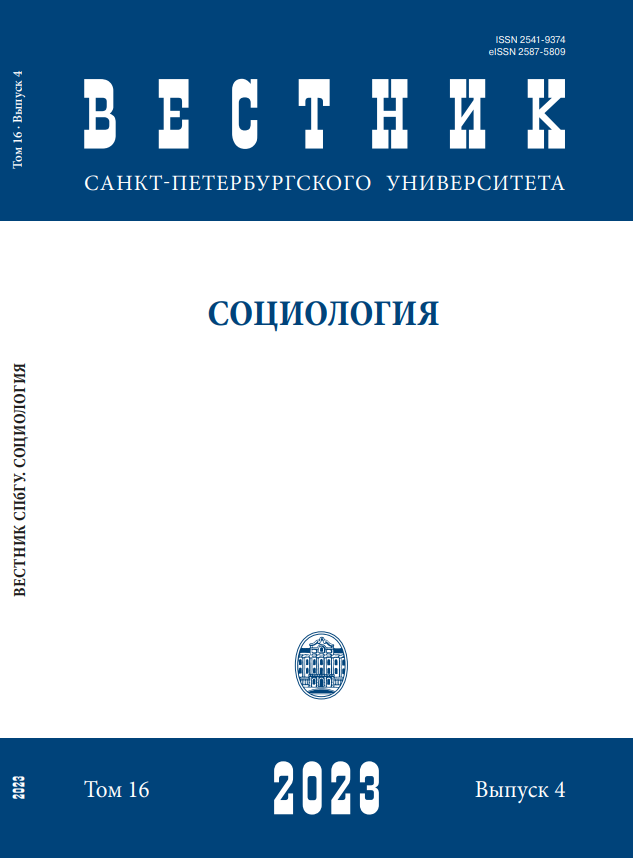Опросные исследования межпоколенческой трансмиссии ценностей: обзор зарубежных исследований
DOI:
https://doi.org/10.21638/spbu12.2023.401Аннотация
Данная статья представляет собой обзор зарубежного англоязычного поля опросных исследований межпоколенческой трансмиссии ценностей (МТЦ). В ходе подобных научных изысканий, как правило, опрашиваются группы родственников: родители (отец и/или мать) — передатчики ценностей — и получатель ценностей — ребенок, а также учитываются контекстуальные факторы, например период жизни ребенка, композиция семьи и социально-экономическая ситуация в стране. Несмотря на то что измерение МТЦ является важным инструментом мониторинга процессов социальной динамики, а также способом сглаживания различных форм стигматизации на основе принадлежности к поколению и возрасту, эта методология пока не получила широкого распространения среди российских представителей социальных наук. В этой статье для определения перспектив изучения МТЦ в отечественных опросных исследованиях родителей и их детей систематизируются угрозы надежности и валидности измерения МТЦ на основе анализа зарубежных публикаций с опорой на теоретические представления о критериях качества количественных исследований Э.Дрост. По результатам анализа было установлено, что основные проблемы при изучении МТЦ представляют: ситуация опроса, выбор вопросника для измерения ценностей, размер и композиция выборки, количество и периодичность замеров ценностей. Проблемы, связанные с конструктной валидностью и надежностью, представляются более всего поддающимися исследовательскому контролю и воздействию. Вместе с тем серьезные опасения вызывает валидность статистических выводов, внутренняя и внешняя валидности. Уменьшение их негативного вклада в качество измерения МТЦ представляет собой актуальный методический вызов и на данный момент может препятствовать в расширении использования данной методологии российскими учеными. Статья может быть интересна для исследователей семьи, детства и взросления.
Ключевые слова:
межпоколенческая трансмиссия ценностей, межпоколенческая трансмиссия, культурная трансмиссия, опрос, семья, родители, дети, ценности, поколение
Скачивания
Библиографические ссылки
Загрузки
Опубликован
Как цитировать
Выпуск
Раздел
Лицензия
Статьи журнала «Вестник Санкт-Петербургского университета. Социология» находятся в открытом доступе и распространяются в соответствии с условиями Лицензионного Договора с Санкт-Петербургским государственным университетом, который бесплатно предоставляет авторам неограниченное распространение и самостоятельное архивирование.




